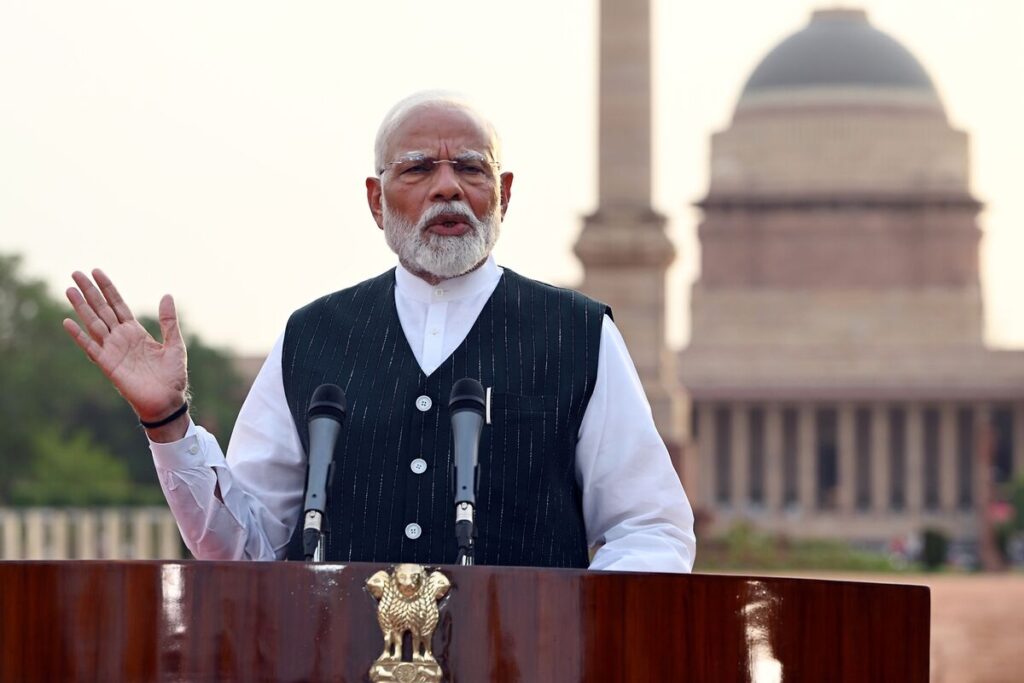June 8, 2024 at 5:52 PM PDT
Narendra Modi will be sworn in as India’s prime minister for a third consecutive term on Sunday, extending his leadership for another five years despite a significant electoral setback that requires him to share power for the first time.
The swearing-in ceremony will take place at the president’s expansive residence in central New Delhi, with up to 8,000 guests, including leaders from neighboring countries such as Bangladesh and Sri Lanka. The event begins after 7 p.m. local time, with Modi’s council of ministers also scheduled to be sworn in.
Modi’s inauguration follows days of intense power negotiations in the capital after his Bharatiya Janata Party (BJP) lost its outright majority in the lower house of parliament following a marathon six-week election. This setback forced the BJP to form a coalition government with its allies, enabling Modi to return as prime minister but leaving him politically diminished and dependent on partners.
Key questions remain about the new government, including who will be appointed to major cabinet positions. Allies of the BJP are seeking key posts, and Sunday’s ceremony follows days of internal negotiations among members of the BJP-led National Democratic Alliance (NDA). On Friday, NDA members met at parliament to officially endorse Modi as their leader.
With his inauguration, Modi becomes only the second prime minister elected to three consecutive terms, following Jawaharlal Nehru, India’s first post-independence leader, who ruled for 17 years after the country’s 1947 independence from Britain.
Modi’s electoral setback this year ends a decade of majority rule by the BJP—a period marked by sustained economic growth, but also by what critics describe as centralization of power and democratic backsliding.
In his third term, Modi has vowed to continue the country’s economic development and work towards the goal of making India a developed nation by 2047. His government faces significant challenges, including tackling unemployment, especially among the youth, and inflation—issues that contributed to the BJP’s disappointing election results.
The BJP secured 240 seats on its own and 293 seats with allies in the 543-seat Lok Sabha, the lower house of parliament. In the 2019 election, the BJP won 303 seats.
Analysts suggest that a Modi-led government that must answer to coalition partners is a positive outcome for India after a decade of single-party rule.
“You have Modi, who is still leading the government, still able to drive economic reform, still seen as a very capable and popular leader for the next five years running the most populous democracy in the world—but a leader that needs to compromise,” Ian Bremmer, president of political risk consulting firm Eurasia Group, said in a webinar with Bloomberg TV’s Menaka Doshi.
“This is going to end up being good for the Indian people and it’s going to be good for India’s role in the world,” he added.

